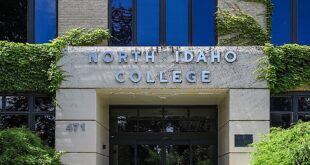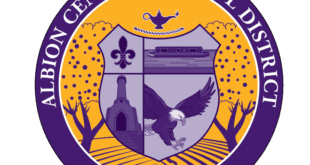The National Working Group on Advanced Education recently released a report titled “Building a Wider, More Diverse Pipeline of Advanced Learners,” which offers a series of recommendations to enhance advanced learning opportunities. This group, launched by the Fordham Institute in 2022, believes in the importance of ensuring that all students, not just those with advantages, have the opportunity to excel. In an interview with Mike Petrilli, the president of the Fordham Institute and convener of the group, he discusses the efforts of the group and some key recommendations.
The National Working Group on Advanced Education consists of 20 members from diverse backgrounds, including academics, practitioners, advocates, and policymakers. Their mission was to develop a cohesive set of recommendations for states, school districts, and charter networks to expand advanced learning opportunities for all students, particularly those from underserved groups. After several meetings, the group finalized their report in June 2023. The report contains 36 evidence-based recommendations designed to enhance advanced learning opportunities for students in grades K-12.
One significant recommendation focuses on providing advanced learning opportunities for younger students. The group proposes implementing “universal screening” for gifted and talented programs, which involves selecting students based on test scores or grades instead of relying solely on parent nominations or teacher recommendations. This approach aims to identify more students who may benefit from advanced programs. Another recommendation suggests using school-based “norms” to determine eligibility for advanced learning services. Rather than requiring students to score at the 90th percentile nationally, the recommendation suggests using the 90th percentile within a student’s own school. This way, gifted programming becomes available in all schools, including high-poverty schools where achievement levels may be lower.
Although the report is titled “Building a Wider, More Diverse Pipeline of Advanced Learners,” it primarily focuses on what is traditionally referred to as “gifted education.” Mike Petrilli explains that their focus is on students who achieve or have the potential to achieve at high levels, rather than those specifically identified as “gifted.” The group intentionally avoids debates surrounding the definition of giftedness and seeks to shift the focus towards high achievers and those with potential for high achievement, regardless of innate “gifts.”
Regarding concerns about using test scores and grades as measures of merit, Petrilli emphasizes that the goal is not to give students or parents a sense of achievement for being smart. Instead, it is about providing necessary services for students to thrive and reach their full potential. While test scores and grades are reliable measures, Petrilli suggests that other indicators could be used, such as teacher recommendations, as long as they are not mandatory. Students can also self-nominate or be nominated by their peers as part of the selection process to ensure inclusivity.
The group’s recommendations are rooted in research evidence, with the report providing citations for readers to further explore the topic. The National Working Group includes respected scholars in the field, and they aim to align their recommendations closely with research findings. However, Petrilli acknowledges the need for more research in some areas to guide educational practices.
Moving forward, implementing these recommendations may face challenges in the current divided political climate. The topic of advanced education often sparks debates between opposing viewpoints. Petrilli argues that the key to finding common ground is to listen to one another. The group’s diverse composition and opportunities for face-to-face meetings allowed for productive debates and discussions to address contentious issues.
Despite this effort to find consensus, the report may still face critique from both the political left and right. Some on the right may take issue with the report’s call for culturally responsive teaching, while some on the left may question the need for advanced education altogether. However, Petrilli believes that most fair-minded individuals will find value in the report and its recommendations.
In conclusion, the National Working Group on Advanced Education has released a report aimed at building a more diverse pipeline of advanced learners. Their recommendations focus on expanding opportunities and support for all students, particularly those from underserved groups. The report suggests various measures, including universal screening and school-based norms, to identify and accommodate advanced learners. The group emphasizes the importance of evidence-based practices and urges policymakers and practitioners to find common ground to promote equity and excellence in advanced education.
 Mind Uncharted Explore. Discover. Learn.
Mind Uncharted Explore. Discover. Learn.


